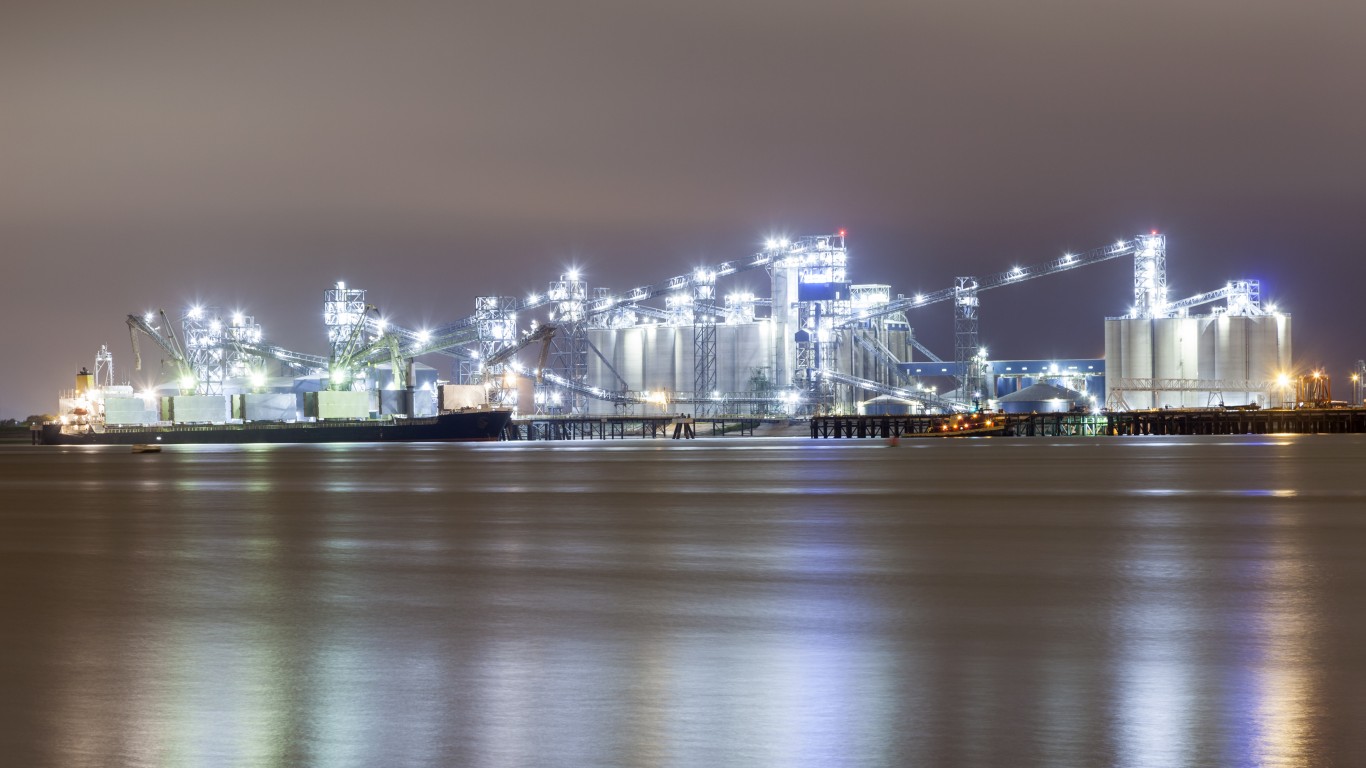
Analysts at IHS Markit’s refining and marketing service have released a new report forecasting that demand for refined products like gasoline, jet fuel and diesel fuel will fall below 2019 levels in 2050.
Based on the firm’s Inflections base case scenario model, demand is forecast to peak in 2036:
The scenario expects that, from 2021 to its 2036 peak, total refined product demand will grow by nearly 9 MMbd [million barrels per day]. Demand is then expected to decline by more than 5 MMbd to 2050 (to a total of 85.5 MMbd), placing it below 2019 baseline levels.
[in-text-ad]
IHS Markit includes gasoline, diesel fuel, jet fuel and biofuels in its calculations but excludes natural gas liquids. The firm’s model also calculated demand if biofuels were excluded and estimated that peak demand for refined products would be in 2032. The shorter time frame is “hastened by an intensification of fuel economy and substitution investments linked to enhanced government and corporate greenhouse gas targets. Biofuels added to refined products [are] projected to grow over 2 MMbd by 2050, resulting in a near doubling of this lower-carbon fuel source.”
Sandeep Sayal, vice president of oil markets and downstream refining at IHS Markit, explained:
The energy transition has accelerated during COVID-19, and the combination of changing consumer habits and a heightened sense of urgency around climate change will result in greater political commitment and financial backing for decarbonization of the industry. However, some of the more accelerated scenarios that envision net zero emissions and dramatically lower oil demand stretch the limits of what is technologically and politically feasible and remain outside of the base case.
IHS Markit anticipates an increase in plug-in electric vehicles from less than 1% of the current on-the-road global fleet to 44% by 2050. Alternative fuels will reduce the share of refined oil products to below 60% in the marine sector, and biofuel blends will meet 15% of jet fuel demand by 2050.
Refiners are expected to investigate biomass and hydrogen fuels and explore ways to decarbonize refining’s value chain:
Fewer large-scale crude processing investments are expected to be made (and most likely none in Organization for Economic Cooperation and Development countries). However, ongoing investments to meet [a] growing need for petrochemical feedstocks are expected, such as dedicated crude-to-chemicals plants and refinery-petrochemical integrations within current large integrated sites.
In addition to more than 2.3 million barrels a day of refining capacity already shut down due to the COVID-19 pandemic, IHS Markit expects another 3 million barrels a day of capacity to be shut down by 2050. “There will be closures to come,” Sayal noted.
Travel Cards Are Getting Too Good To Ignore (sponsored)
Credit card companies are pulling out all the stops, with the issuers are offering insane travel rewards and perks.
We’re talking huge sign-up bonuses, points on every purchase, and benefits like lounge access, travel credits, and free hotel nights. For travelers, these rewards can add up to thousands of dollars in flights, upgrades, and luxury experiences every year.
It’s like getting paid to travel — and it’s available to qualified borrowers who know where to look.
We’ve rounded up some of the best travel credit cards on the market. Click here to see the list. Don’t miss these offers — they won’t be this good forever.
Thank you for reading! Have some feedback for us?
Contact the 24/7 Wall St. editorial team.




